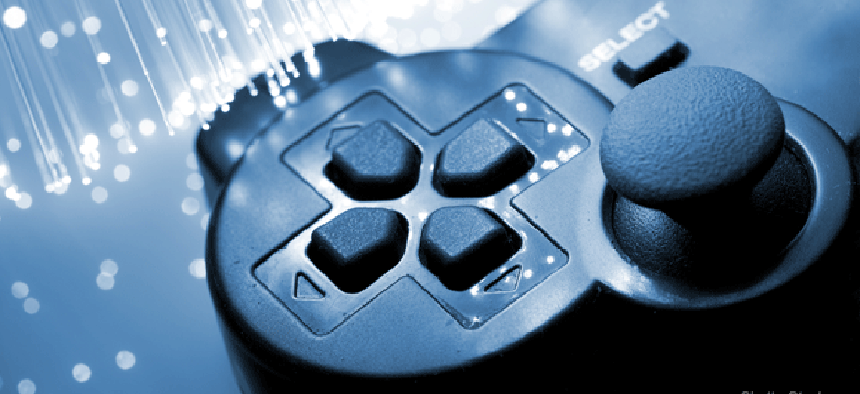With a different online game, agencies can be the winners


Connecting state and local government leaders
Lockheed Martin looks to combine gamification with analytics to develop games that deliver valuable data to sponsoring agencies.
Games are inherently focused on the user, engaging players in a challenge, contest or journey. And many public-sector agencies that host online games take that path, using games as outreach tools to attract users for education or recruitment.
But with the right approach, games also can do a lot for the agencies that host them. Eric Hackathorn, the program manager of the National Oceanic and Atmospheric Administration’s Fragile Earth Studios, has touted the idea of enlisting gamers to help solve some of government’s problems, and hosted a webinar on the topic in July 2012.
Some agencies have already put the idea to the test. The Office of Naval Research launched a multiplayer online war game in 2011 to see if it could get ideas on how to battle Somali pirates, and the Defense Advanced Research Projects Agency has enlisted gamers to help develop medical training software.
Now Lockheed Martin is getting into the emerging field of gamification, with a focus on how agencies can use the games to their advantage.
By adding analytics to the gamification model, in fact, a game’s sponsor can actually get a lot more out of it than the players in certain circumstances, said Lockheed Senior Fellow Mel Greer, who is heading up the company’s gamification efforts.
Lockheed is working on a game based on energy consumption that fits the new model. In it, players are asked what appliances they would be willing to do without for five minutes during the day. They can earn points based on their responses, and might even be able to earn some free electricity from their utility company. But the real value of the game, which is nearing completion, is the analytical data collected, which is fed back to the power company.
Knowing that consumers would almost universally be willing to do without their freezer for five minutes in the middle of the night, manufacturers could design smart appliances that would do just that, saving on energy consumption and helping to improve the efficiency of the power transmission lines.
Greer suggested that gamification might help improve solar panel efficiency. He pointed to the recent success of the Fold.it game in which players try and map out an enzyme used to fight the AIDS virus. Scientists had been working on that problem for 15 years. With the game in place, the project was completed in just three weeks. Greer said many similar successes could be found if the right games are designed around biological problems.
Of course Greer knows that while games can benefit to the sponsors, they still have to be fun to play. Lockheed Martin is in talks with companies such as Bunchball, an industry leader in gamification, to bring its unique skill set into the federal government. “While gamification has garnered significant attention within the private sector, it is also an ideal way to engage citizens and federal employees in online experiences that lead to improved productivity and enhanced loyalty,” said Jim Scullion, Bunchball’s CEO.
Once Lockheed Martin begins rolling out these new types of focused games, players probably won’t know the difference between a purely player-focused title and one that is secretly doing a lot of good behind the scenes. A high score is a high score. It’s just that everyone will be playing a slightly different game.
NEXT STORY: Can $100 UDOO computer trump the Raspberry Pi?




